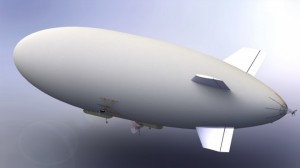
Somebody Should Go to Jail
The Distributed Common Ground System (DCGS) is a direct descendant of the failed U.S. Army Future Combat System Program (FCS) which was cancelled in 2009 after a cost of some $18 billion dollars. The goals of the FCS Program were always somewhat ambiguous, but included the concept of “Network Centric Warfare”; the principal military advocate of which was the late Admiral Arthur Cebrowski (U.S. Navy). Since his death his total vision of Network Centric Warfare (NCW) has found no strong advocate, but one component of NCW has been adopted by both the U.S. Navy and the Air Force namely an information focused command and control system under the acronym of C4ISR (Command, Control, Communications, Computers (C4) Intelligence, Surveillance, Reconnaissance (ISR)).
(See Network-Centric Warfare by Norman Friedman (Naval Institute Press 2009))
Since each of the U.S. Military Services operate in a vacuum, to my knowledge the U.S. Army never approached either the Navy or the Air Force to share their experiences with NCW before or after launching the FCS Program. The DCGS is of course the information management component of a C4ISR decision making system. From the sound of it the U.S. Army spent over $2 billion dollars on an information system that not only did not benefit from Navy or Air Force experiences with similar systems, but whose designer had no understanding the basic analytic needs of troops who were going to use the system. Indeed the various program managers apparently did not talk to each other let alone the analysts in the field that were going to use it. This is all the more inexcusable because ten years ago the necessary applications to retrieve multi-source data, organize it, and display it using GIS was already in use. (I and many other analysts routinely used this combination for analysis and production.) To design a system today which cannot do this with ease is criminally incompetent. This is what happens when the Military Services, in this case, the U.S. Army are devoid of institutional memory and operate in nearly complete isolation. This is an area where the near somnolent Joint Chiefs ought to act, but are clearly too wrapped up in enhancing their own parochial interests.
Phi Beta Iota: The above remarks were inspired by DefDog: US Army Blows Intelligence Computing (Again)…. All signs point toward the complete collapse of the US Government, including the Department of Defense (DoD), as a legitimate capable entity in both international and domestic state and local eyes. More and more we are seeing hybrid constellations that have come to the realization that they cannot trust the US Government, they cannot rely on the US Government for valid actionable information or intelligence (decision-support), and they need not fear the US Government as long as they are “not an expensive enough problem.” We now look to selected Governors, chambers of commerce, universities, professional associations, and perhaps a few enlightened national governments to begin shaping the new world network. Through its own arrogance and ignorance, the US Government has cut itself off from reality and is unable to adapt to the new paradigm where sharing rather than secrecy, integrity rather than ideology, and intelligence rather than force, are the new rules of the game.





